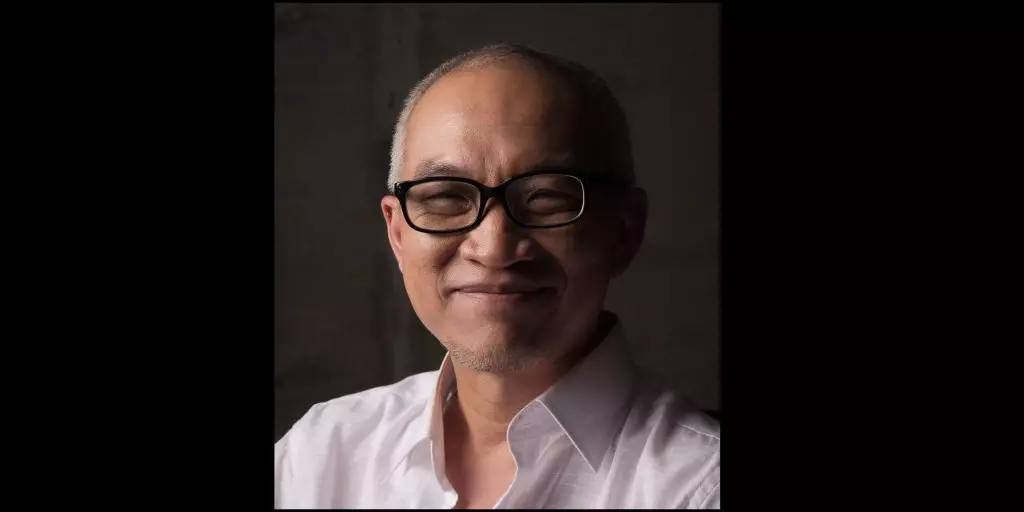The loss of John Badalu marks a profound moment for Southeast Asian cinema and the broader LGBTQ+ community. Badalu, who passed away peacefully at the age of 53 at his home in Bali, was not just a film producer and programmer; he was an unstoppable force striving for inclusivity and representation in a region often marred by cultural stigmas and conservative norms. His contributions to film and advocacy showcase the powerful intersection of art and activism, making him a pivotal figure whose legacy will continue to inspire future generations.
Born in the vibrant city of Makassar on Sulawesi Island, Badalu’s life experience as a member of ethnic minority groups—being Chinese, Buddhist, and gay—significantly shaped his artistic vision. These layered identities inspired him to craft stories that reflected often-overlooked perspectives, merging personal narratives with broader social themes. Badalu’s films were not just titles to be screened; they were meaningful dialogues that addressed various cultural dynamics, providing a voice to underrepresented communities.
A Platform for Marginalized Voices
Throughout his career, Badalu’s production work highlighted the rich tapestry of voices in Southeast Asia. His collaboration with emerging and established filmmakers alike proved essential for the resurrection of narratives often silenced by mainstream discourse. The critically acclaimed “Malila: The Farewell Flower” can be seen as a shining beacon among his works, eloquently depicting the complex emotional reconciliation between two former lovers while subtly questioning societal expectations surrounding love and relationships.
Notably, Badalu was instrumental in bringing forth projects like “Ave Maryam”, which delves into the lives of the Christian community in Indonesia, painting a striking portrait of devotion amidst societal challenges. His alliance with prominent filmmakers—including Mouly Surya—ensured that important stories were not just created but celebrated within international circles, premiering at world-renowned festivals such as Cannes and Berlin. These platforms provided critical exposure, allowing complex narratives rooted in Southeast Asian culture to emerge on a global stage.
Championing LGBTQ+ Rights and Representation
Perhaps one of Badalu’s most significant contributions was the creation of the Q! Film Festival in 2002, the first LGBTQ+ film festival in Indonesia. This bold initiative transformed the landscape of queer cinema, providing an essential platform for filmmakers to showcase their work in a country where LGBTQ+ themes often face severe censorship and discrimination. The festival became a monthly event, growing exponentially and reaching various cities, all while promoting meaningful dialogue about sexual and gender identities.
Under Badalu’s stewardship, the festival did not merely exist for artistic expression. It became a vehicle for social change, inspiring conversations that extended beyond the silver screen. The success of the Q! Film Festival emboldened a collective of LGBTQ+ advocates to influence policies, prompting recognized institutions like the Indonesian National Commission on Human Rights to include sexual minorities within their framework of support. This is a testament to Badalu’s vision, emphasizing the actionable impact that art can have in lobbying for social justice and human rights.
A Lasting Influence on Future Generations
In the years leading up to his passing, Badalu increasingly focused on mentoring emerging filmmakers, nurturing the next generation of voices that echoed his ideals. Projects like “Basri & Salma in a Never-Ending Comedy” achieved historic milestones, making headlines as the first Indonesian film to compete for the Short Film Palme d’Or at Cannes. His dedication to championing young talent illustrates an unwavering commitment to creativity and empowerment within the arts.
Beyond the festival circuit, Badalu excelled as a champion for diverse voices in various film festivals, contributing his expertise as a programmer and delegate in distinguished events worldwide, including Berlinale and Busan. This role further allowed him to curate a dialogue on the importance of diversity in storytelling, proving that cinema could serve as a bridge to understanding and acceptance across differing cultures.
As we reflect on the life and legacy of John Badalu, it is evident that his impact transcends the film industry. He reminds us that the stories we choose to tell—rooted in empathy and inclusivity—have the power to heal, educate, and inspire. While his physical presence may be lost, his vision for a more inclusive world will undoubtedly echo in the hearts and minds of countless individuals he inspired.


Leave a Reply